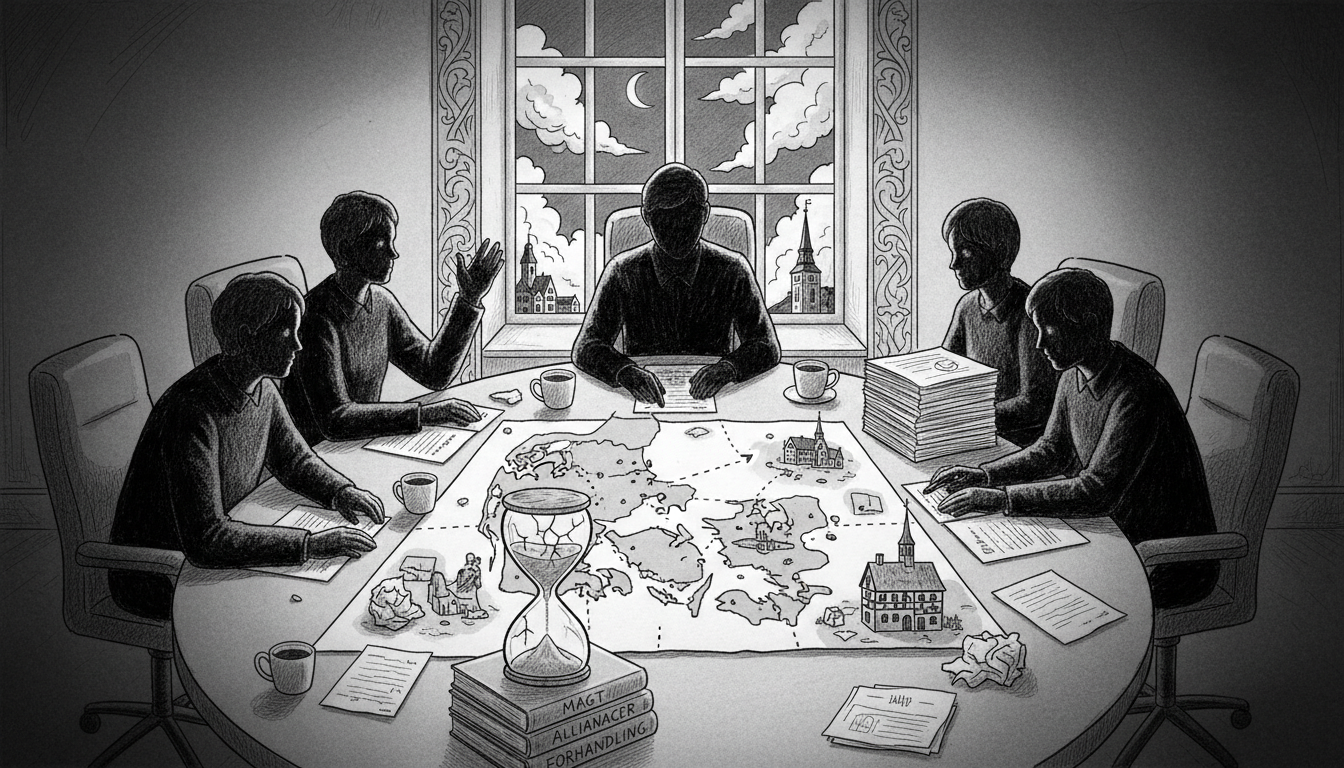Danish political parties have entered the crucial post-election negotiation period known as 'the long knives night' as they scramble to form governing majorities in municipalities across the country. This intense phase follows recent local elections where votes have been counted but power structures remain unsettled.
Election researcher Ulrik Kjær from the University of Southern Denmark explains the high-stakes nature of these negotiations. He describes the process as an unregulated game where former allies can quickly become opponents. The goal for each party is simple but challenging - secure enough support to claim the mayor's position and control key committee assignments.
Municipal councils must hold formal meetings between December 1 and December 15 to officially elect mayors and distribute committee positions. However, the real political maneuvering begins immediately as election results become clear. Parties engage in multiple rounds of talks, first seeking to establish a basic majority, then working to broaden their governing coalitions.
What makes these negotiations particularly volatile is the scarcity of pre-election agreements. Parties generally avoid making firm commitments before votes are counted, fearing they might concede too much power unnecessarily. This strategic hesitation often leads to marathon negotiation sessions and surprising political alliances.
Recent election cycles provide striking examples of last-minute political shifts. In Kolding during the previous municipal elections, political observers predicted a head-to-head contest between two former government ministers. Instead, the overlooked Conservative candidate Knud Erik Langhoff emerged victorious after red parties realized they couldn't muster a majority alone and brought him into their coalition.
Another notable case occurred on Bornholm, where the Red-Green Alliance became the largest party but used its mandates to support a Conservative mayor. These unexpected alliances demonstrate how municipal politics often prioritizes practical governance over ideological purity.
Kjær anticipates similar surprising agreements emerging from current negotiations. He notes that some municipalities will experience straightforward power transitions while others face complex 'double-trouble' scenarios requiring extensive bargaining. In these difficult cases, the constitution process can extend for several days or even longer.
Despite the potential for dramatic political realignments, most municipal councils typically complete their power transitions within the first night after elections. Current data shows that in eight out of ten Danish municipalities, the largest party typically secures the mayor's position.
The Danish municipal system features 98 municipalities governing local services including schools, elderly care, and infrastructure. Mayors serve four-year terms and wield considerable influence over local policy implementation and budget allocation. This makes the current negotiation phase critically important for determining how communities will be governed through the coming term.
International observers often find Danish municipal politics distinctive for its flexibility in coalition-building. Unlike national politics with more rigid bloc divisions, local governments frequently cross traditional left-right divides to form workable majorities. This pragmatic approach reflects the focus on practical problem-solving rather than ideological battles.
As negotiations continue behind closed doors, citizens await final outcomes that will shape local governance for the next four years. The results will determine everything from school policies to elderly care arrangements and environmental initiatives across Denmark's municipalities.

